Finding a trained poultry veterinarian or any vet who will agree to treat chickens is extremely difficult, if not impossible for many and nothing leaves a chicken keeper feeling more helpless than not knowing how to help a sick flock member. This article covers basic guidelines to follow when caring for a sick chicken without a vet.
GIVEAWAY!
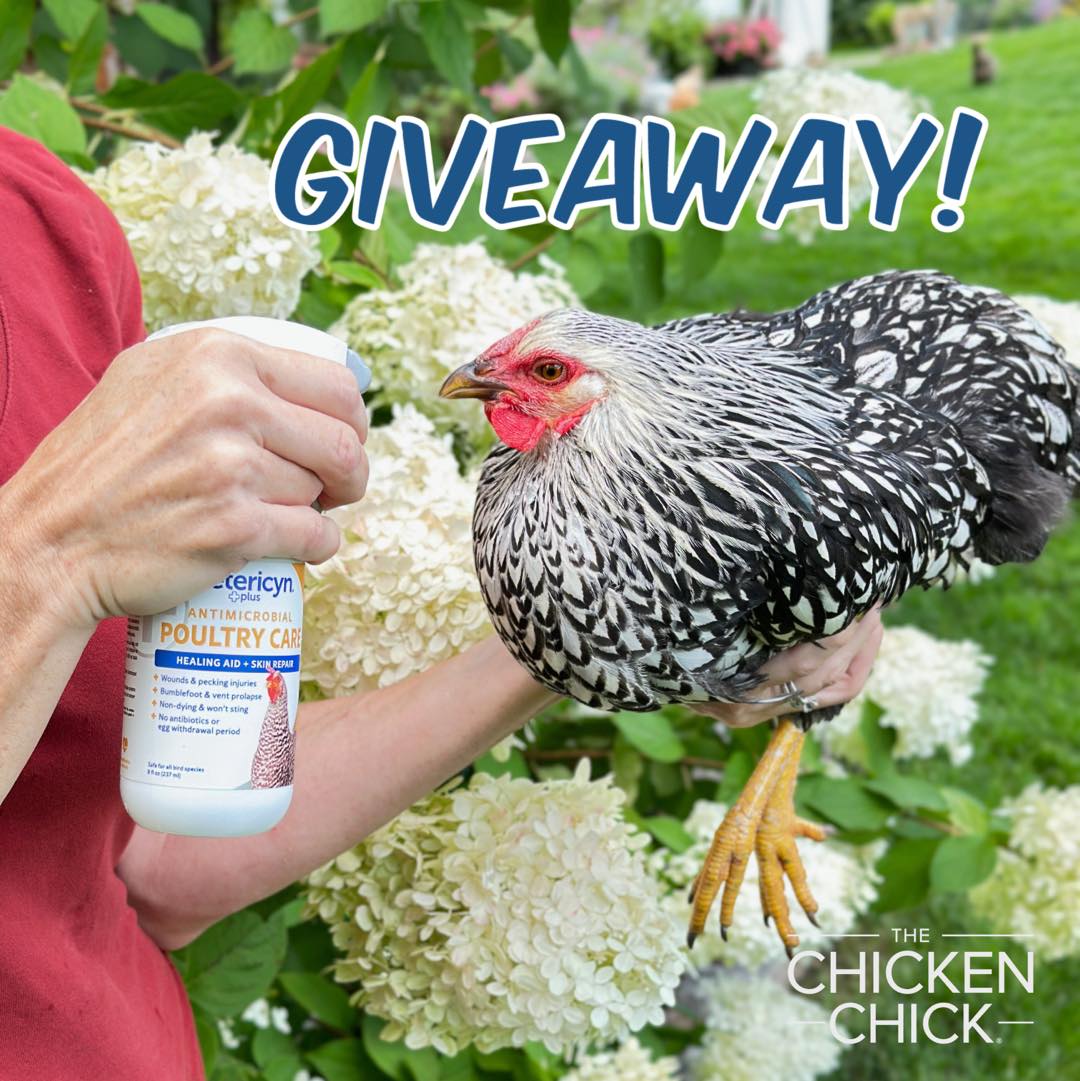
Enter to WIN a Vetericyn Poultry Plus Prize Package!
Entry details below!
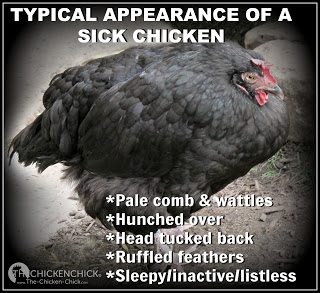
Chickens offer subtle cues when they are under the weather and by regularly spending time with our flocks, we will be able to pick up on signs that they are sick. Common indications of a sick chicken include: hiding, inactivity, pale comb or wattles, unusual droppings, unusual posture, lethargy, lack of appetite and reduced egg production- all indications that closer observation is needed.

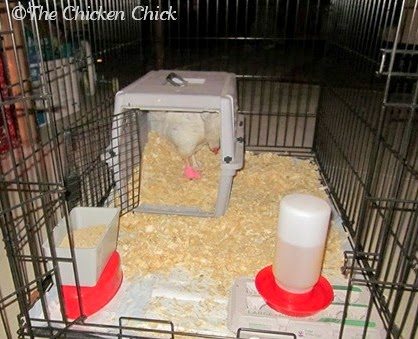
DOs & DON’Ts OF SICK CHICKEN CARE
DO ISOLATE
Priority #1 is to provide a sick chicken with a quiet, protected, warm environment away from the flock where it can be observed closely. Separation from the flock keeps it protected from being bullied or pecked by other flock members and protects the rest of the flock from what may be a contagious condition. I show a variety of sick bay setups in this article.
DO HYDRATE
Priority #2 is to keep the sick chicken hydrated throughout the crisis even if that means offering water by spoon or dropper frequently. Water is involved in every aspect of a chicken’s metabolism from regulating body temperature to digesting food, and eliminating body wastes and if the bird is not hydrated, it does not stand a chance of fighting illness.
Adding a vitamin/electrolyte supplement into the drinking water for a day or two can help an already dehydrated chicken re-hydrate. In the absence of electrolytes, Gatorade may be substituted.
Food is much less critical than water initially for a sick bird. If the chicken is not eating independently, they can be fed by spoon, dropper, syringe or tube fed a liquid diet. Layer feed can be can be crushed with warm water or warm milk to make a soupy mash, which a sick chicken may find enticing when little else does.
If herbal or other dietary supports have not already been a part of a chicken’s regular routine, they should not be offered during an illness. Work on building a healthy immune system after the chicken’s health crisis has passed.
For example, garlic. Who wants a dish of garlic or a shot of vinegar on their nightstand when they’re ill? I don’t and wouldn’t give that to a sick chicken either.
-administered for a non-bacterial infection
-adminstered in the wrong dosage
-administered for the wrong period of time
-adminstered via the wrong route (eg: in the water, in the feed, injected into the muscle)
-the wrong type of antibiotic is being administered
The misuse of antibiotics can make the bird sicker and lead to antibiotic resistance in the flock. Only a treating veterinarian can prescribe antibiotics for laying hens. Learn more about this topic here.
This is Esther, a 4 year old Easter Egger who was put to sleep by her vet. Necropsy revealed that she had extensive reproductive cancer.
DO TROUBLE-SHOOT
In desperation, most of us without vets have or will turn to books or chicken-keeping friends for help trouble-shooting a sick chicken’s symptoms. The following questions can be useful in narrowing down the range of possible problems:
- What’s the age of the bird?
- When was the last time she laid an egg?
- Does she feel lighter or thinner than usual?
- How long have the symptoms been present?
- Any new additions to the flock recently?
- Any other birds in the flock exhibiting any similar or other symptoms of illness?
- Any bleeding, injury, broken bones, bruising or other sign of trauma?
- Is the bird eating and drinking, normally?
- If so, what does the daily diet consist of?
- Any changes in the diet recently?
- Could she have eaten something poisonous?
- Do the droppings look normal?
- Any worms in the droppings?
- Does her crop feel full/empty/hard/soft?
- Does the crop empty overnight? Is her abdomen hard, soft, full, squishy? Are there any dirty feathers near the vent?
- Any insects on the skin or feathers, particularly near the vent?
- Any unusual lesions on the body, under the skin, comb, wattles or in the mouth?
- Is she sneezing, coughing, wheezing, having trouble breathing?
- Is there any facial swelling?
- Is there any nasal/mouth or eye discharge?
- Watery or bubbly eyes?
RESOURCES
Tap into any/all of the state, local and national professional resources listed here as needed.
Once you have some idea about what could possibly be going on with your chicken, visit my Chicken Care Guide for common chicken ailments and at-home treatments when a vet is not an option. I highly recommend having The Chicken Health Handbook, 2nd ED, Damerow, Gail on hand for amateur diagnostics and trouble-shooting.
DO HAVE A EUTHANASIA PLAN
The worst case scenario is always death and sometimes the kindest thing we can do for a chicken beyond saving is to help end their suffering kindly. Many vets, even those that do not treat chickens, will agree to euthanize a sick or dying bird. Find out who those vets are in advance of needing one.
Locate your state veterinary diagnostic laboratory. Many labs will offer euthanasia services prior to a necropsy. Each state has a veterinary lab that will run tests and perform postmortem examinations on animals to determine the cause of death. Know where your lab is, how to contact them and which services they offer. **Always get a necropsy done on any bird that dies of unknown causes for the protection of the surviving flock members and for peace of mind.**
to enter THE GIVEAWAY!
2) COMMENT below this article.
Eligibility limited to US residents only. Giveaway ends 06/03/24 9pm EST.
Winners chosen by random drawing from eligible entries and notified on my Facebook page in a post and via email and/or here.
ADVISORY: I will NEVER MESSAGE you privately or on Facebook messenger! You should NEVER give your credit card information to anyone claiming you won something! Scammers online are everywhere. Be smart, stay safe.
Kathy Shea Mormino
Affectionately known internationally as The Chicken Chick®, Kathy Shea Mormino shares a fun-loving, informative style to raising backyard chickens. …Read on


shop my SPONSORS
Finding a trained poultry veterinarian or any vet who will agree to treat chickens is extremely difficult, if not impossible for many and nothing leaves a chicken keeper feeling more helpless than not knowing how to help a sick flock member. This article covers basic guidelines to follow when caring for a sick chicken without a vet.
GIVEAWAY!

Enter to WIN a Vetericyn Poultry Plus Prize Package!
Entry details below!

Chickens offer subtle cues when they are under the weather and by regularly spending time with our flocks, we will be able to pick up on signs that they are sick. Common indications of a sick chicken include: hiding, inactivity, pale comb or wattles, unusual droppings, unusual posture, lethargy, lack of appetite and reduced egg production- all indications that closer observation is needed.


DOs & DON’Ts OF SICK CHICKEN CARE
DO ISOLATE
Priority #1 is to provide a sick chicken with a quiet, protected, warm environment away from the flock where it can be observed closely. Separation from the flock keeps it protected from being bullied or pecked by other flock members and protects the rest of the flock from what may be a contagious condition. I show a variety of sick bay setups in this article.
DO HYDRATE
Priority #2 is to keep the sick chicken hydrated throughout the crisis even if that means offering water by spoon or dropper frequently. Water is involved in every aspect of a chicken’s metabolism from regulating body temperature to digesting food, and eliminating body wastes and if the bird is not hydrated, it does not stand a chance of fighting illness.
Adding a vitamin/electrolyte supplement into the drinking water for a day or two can help an already dehydrated chicken re-hydrate. In the absence of electrolytes, Gatorade may be substituted.
Food is much less critical than water initially for a sick bird. If the chicken is not eating independently, they can be fed by spoon, dropper, syringe or tube fed a liquid diet. Layer feed can be can be crushed with warm water or warm milk to make a soupy mash, which a sick chicken may find enticing when little else does.
If herbal or other dietary supports have not already been a part of a chicken’s regular routine, they should not be offered during an illness. Work on building a healthy immune system after the chicken’s health crisis has passed.
For example, garlic. Who wants a dish of garlic or a shot of vinegar on their nightstand when they’re ill? I don’t and wouldn’t give that to a sick chicken either.
-administered for a non-bacterial infection
-adminstered in the wrong dosage
-administered for the wrong period of time
-adminstered via the wrong route (eg: in the water, in the feed, injected into the muscle)
-the wrong type of antibiotic is being administered
The misuse of antibiotics can make the bird sicker and lead to antibiotic resistance in the flock. Only a treating veterinarian can prescribe antibiotics for laying hens. Learn more about this topic here.
This is Esther, a 4 year old Easter Egger who was put to sleep by her vet. Necropsy revealed that she had extensive reproductive cancer.
DO TROUBLE-SHOOT
In desperation, most of us without vets have or will turn to books or chicken-keeping friends for help trouble-shooting a sick chicken’s symptoms. The following questions can be useful in narrowing down the range of possible problems:
- What’s the age of the bird?
- When was the last time she laid an egg?
- Does she feel lighter or thinner than usual?
- How long have the symptoms been present?
- Any new additions to the flock recently?
- Any other birds in the flock exhibiting any similar or other symptoms of illness?
- Any bleeding, injury, broken bones, bruising or other sign of trauma?
- Is the bird eating and drinking, normally?
- If so, what does the daily diet consist of?
- Any changes in the diet recently?
- Could she have eaten something poisonous?
- Do the droppings look normal?
- Any worms in the droppings?
- Does her crop feel full/empty/hard/soft?
- Does the crop empty overnight? Is her abdomen hard, soft, full, squishy? Are there any dirty feathers near the vent?
- Any insects on the skin or feathers, particularly near the vent?
- Any unusual lesions on the body, under the skin, comb, wattles or in the mouth?
- Is she sneezing, coughing, wheezing, having trouble breathing?
- Is there any facial swelling?
- Is there any nasal/mouth or eye discharge?
- Watery or bubbly eyes?
RESOURCES
Tap into any/all of the state, local and national professional resources listed here as needed.
Once you have some idea about what could possibly be going on with your chicken, visit my Chicken Care Guide for common chicken ailments and at-home treatments when a vet is not an option. I highly recommend having The Chicken Health Handbook, 2nd ED, Damerow, Gail on hand for amateur diagnostics and trouble-shooting.
DO HAVE A EUTHANASIA PLAN
The worst case scenario is always death and sometimes the kindest thing we can do for a chicken beyond saving is to help end their suffering kindly. Many vets, even those that do not treat chickens, will agree to euthanize a sick or dying bird. Find out who those vets are in advance of needing one.
Locate your state veterinary diagnostic laboratory. Many labs will offer euthanasia services prior to a necropsy. Each state has a veterinary lab that will run tests and perform postmortem examinations on animals to determine the cause of death. Know where your lab is, how to contact them and which services they offer. **Always get a necropsy done on any bird that dies of unknown causes for the protection of the surviving flock members and for peace of mind.**
to enter THE GIVEAWAY!
2) COMMENT below this article.
Eligibility limited to US residents only. Giveaway ends 06/03/24 9pm EST.
Winners chosen by random drawing from eligible entries and notified on my Facebook page in a post and via email and/or here.
ADVISORY: I will NEVER MESSAGE you privately or on Facebook messenger! You should NEVER give your credit card information to anyone claiming you won something! Scammers online are everywhere. Be smart, stay safe.



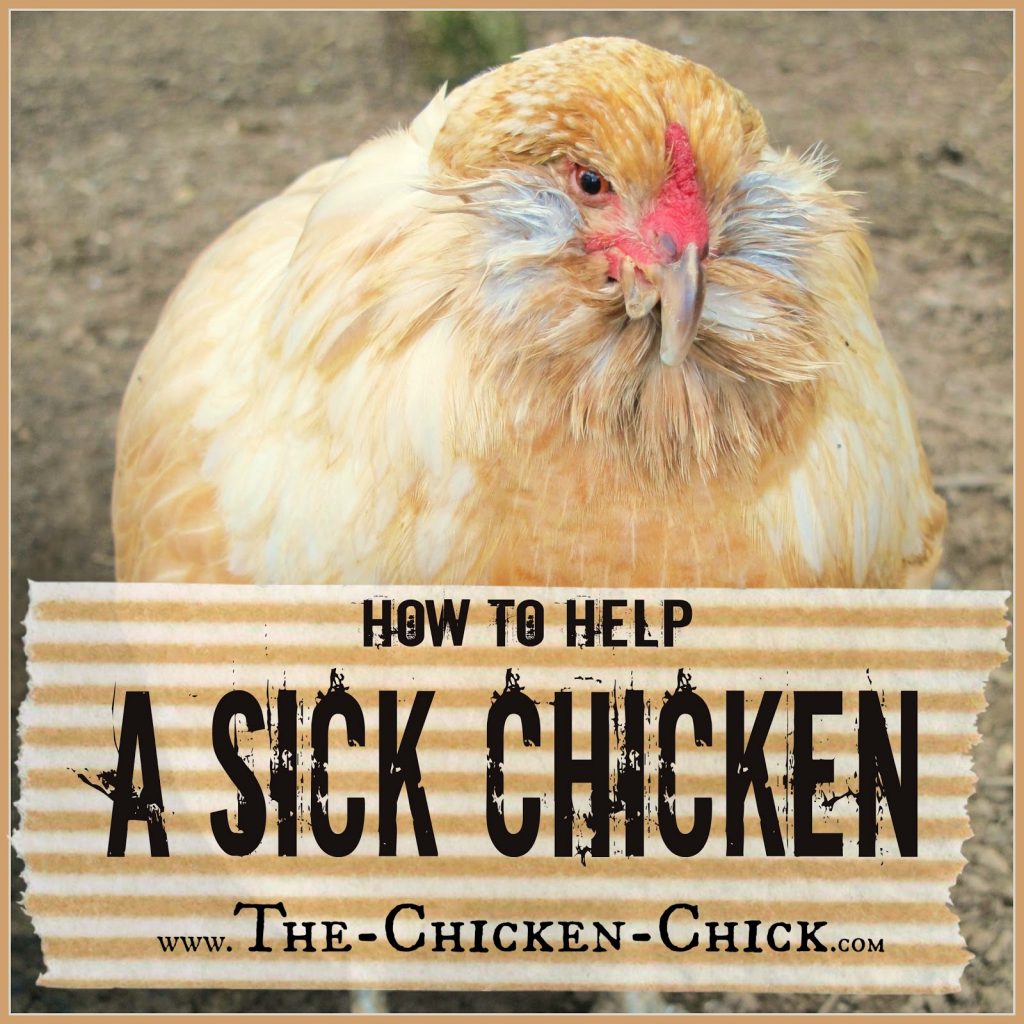

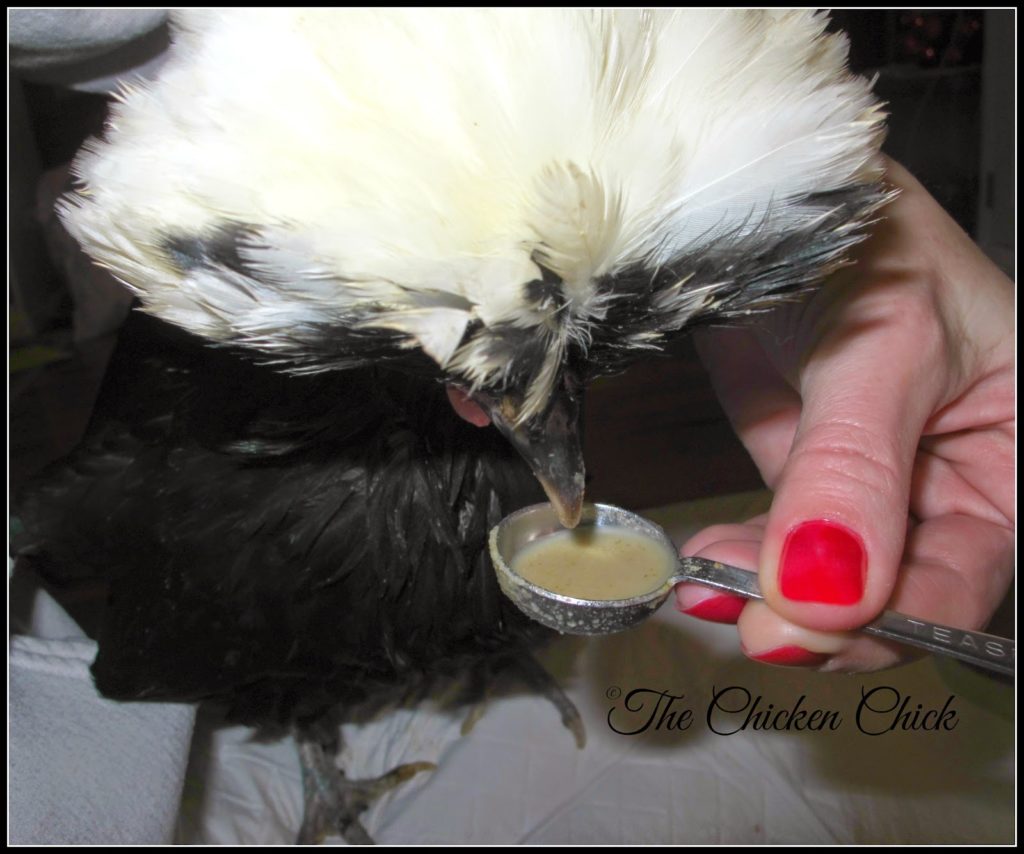
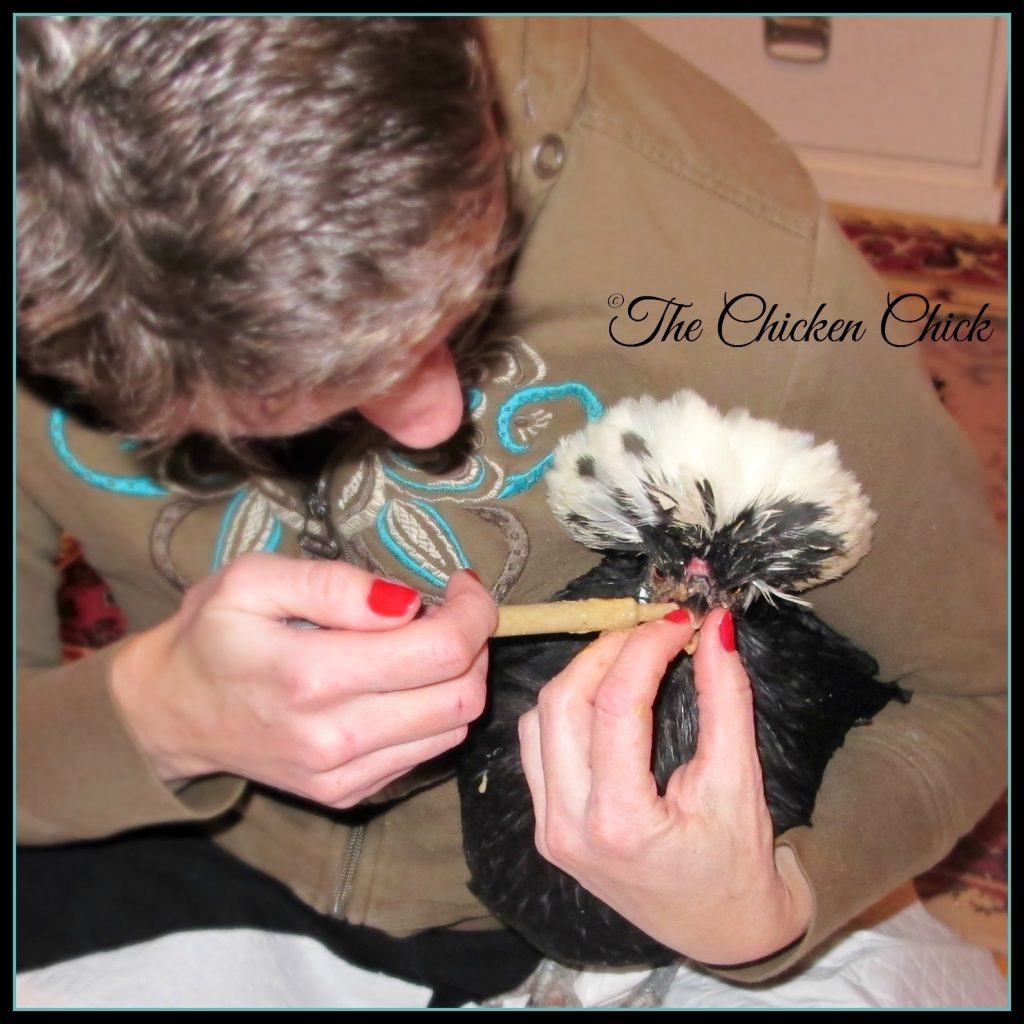
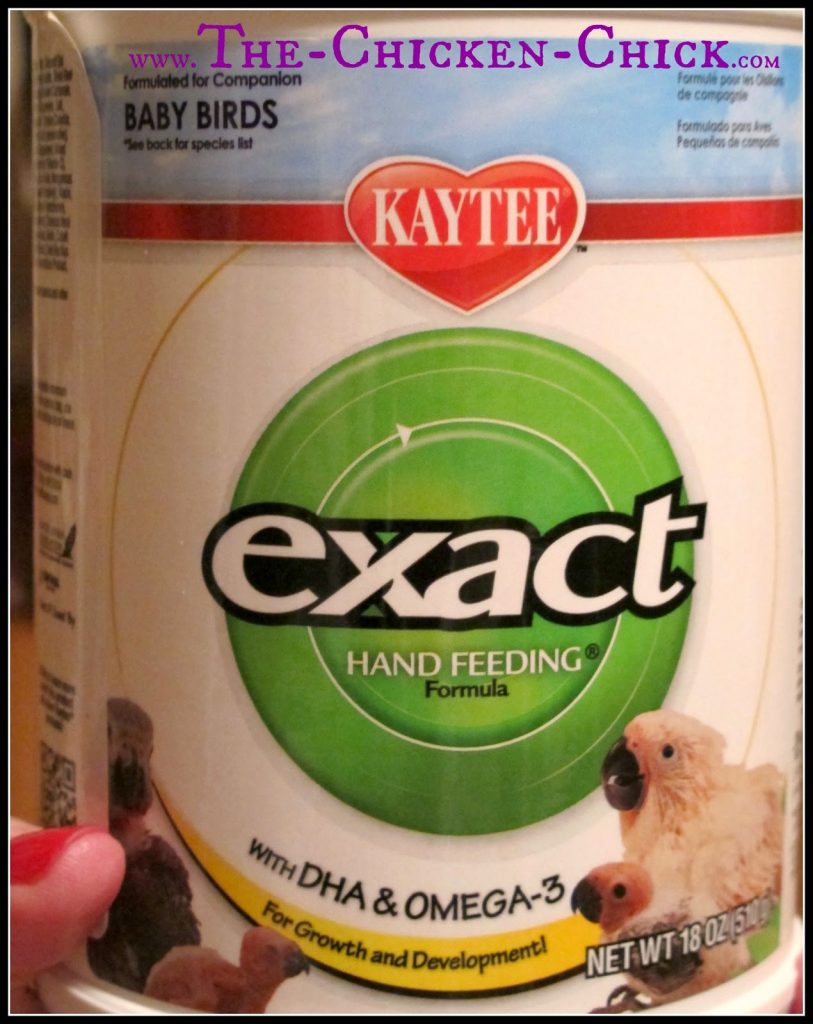
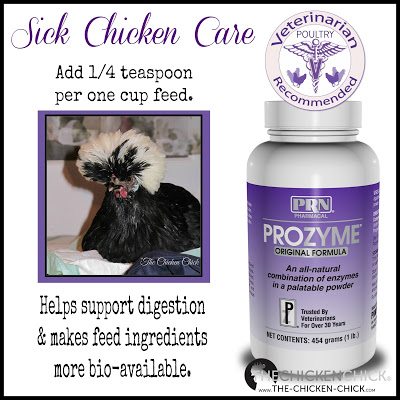
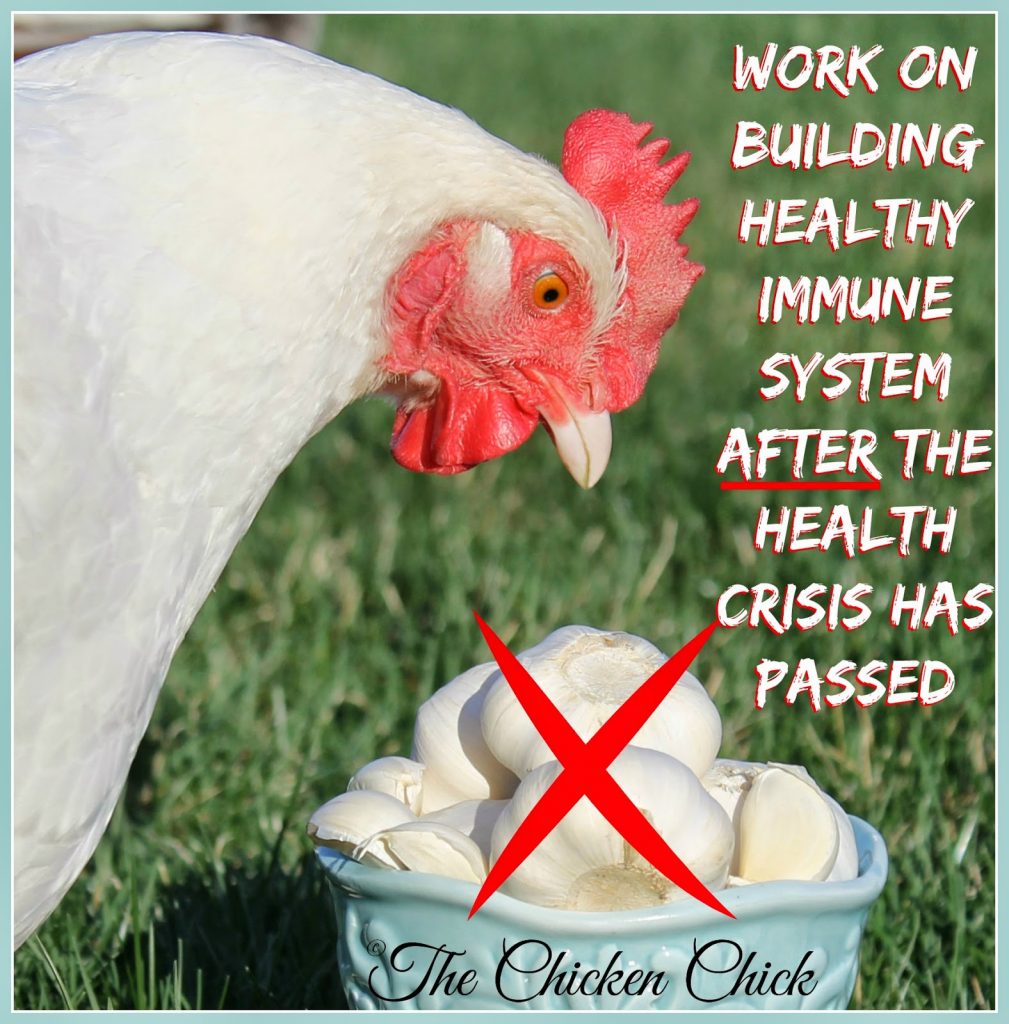
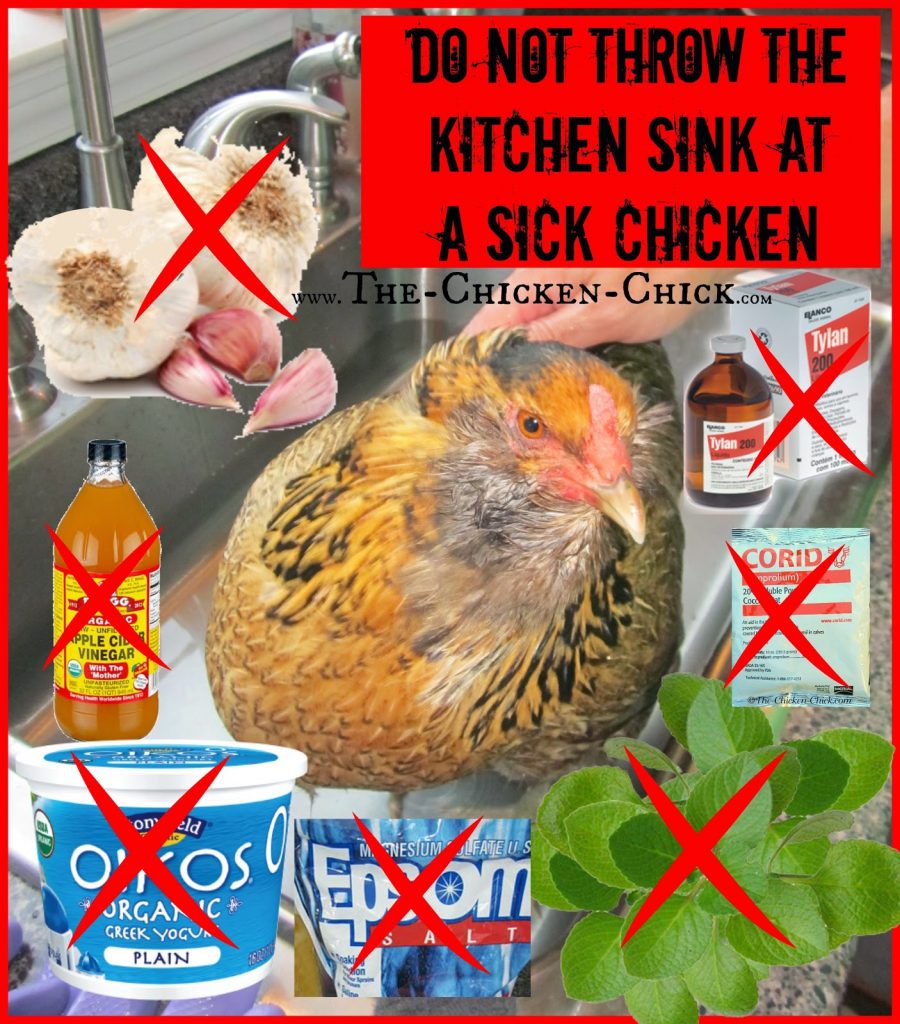
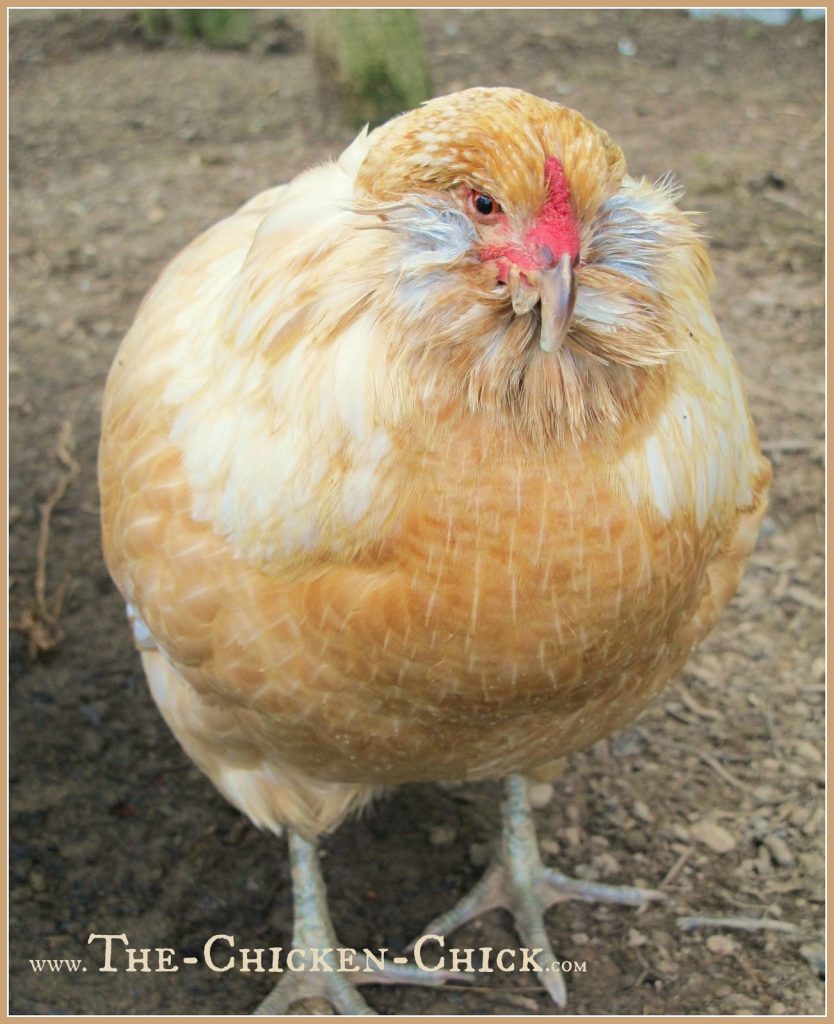
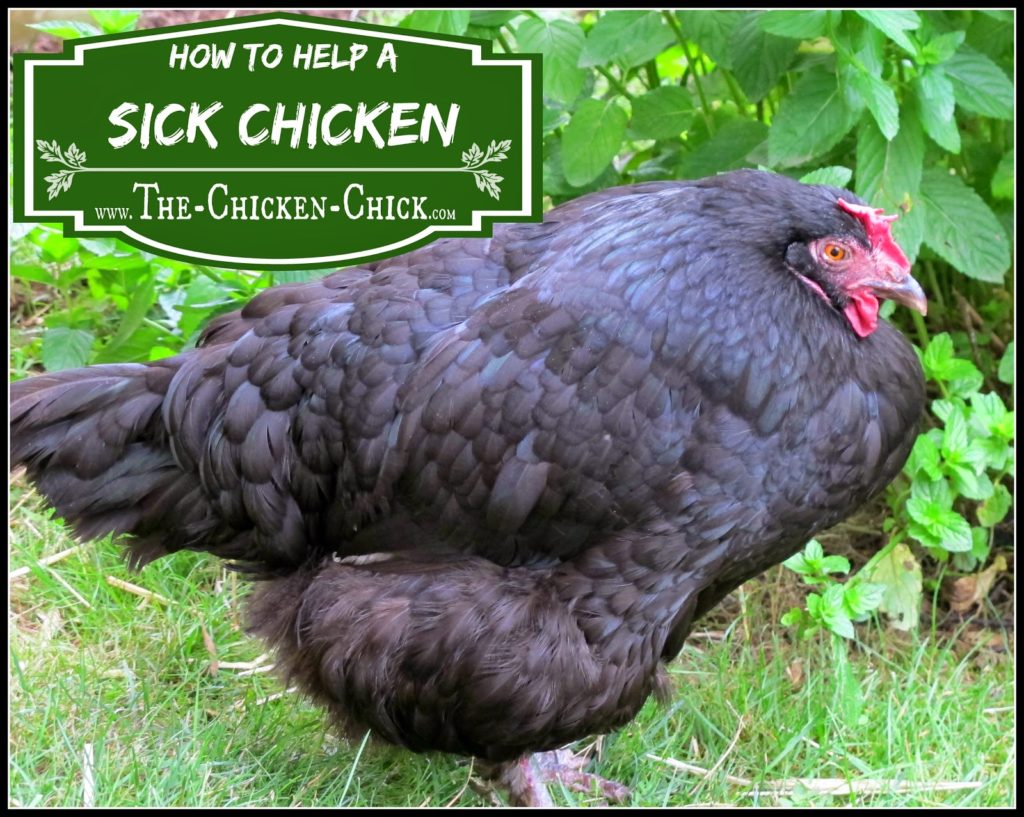
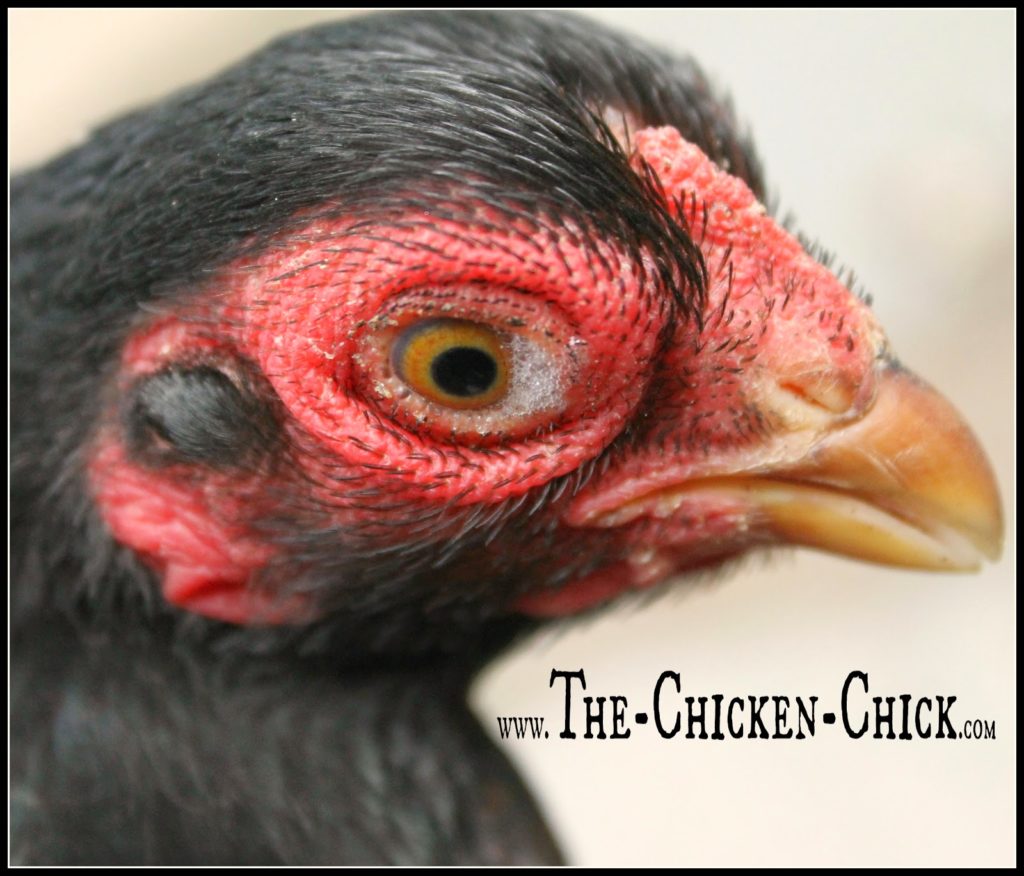

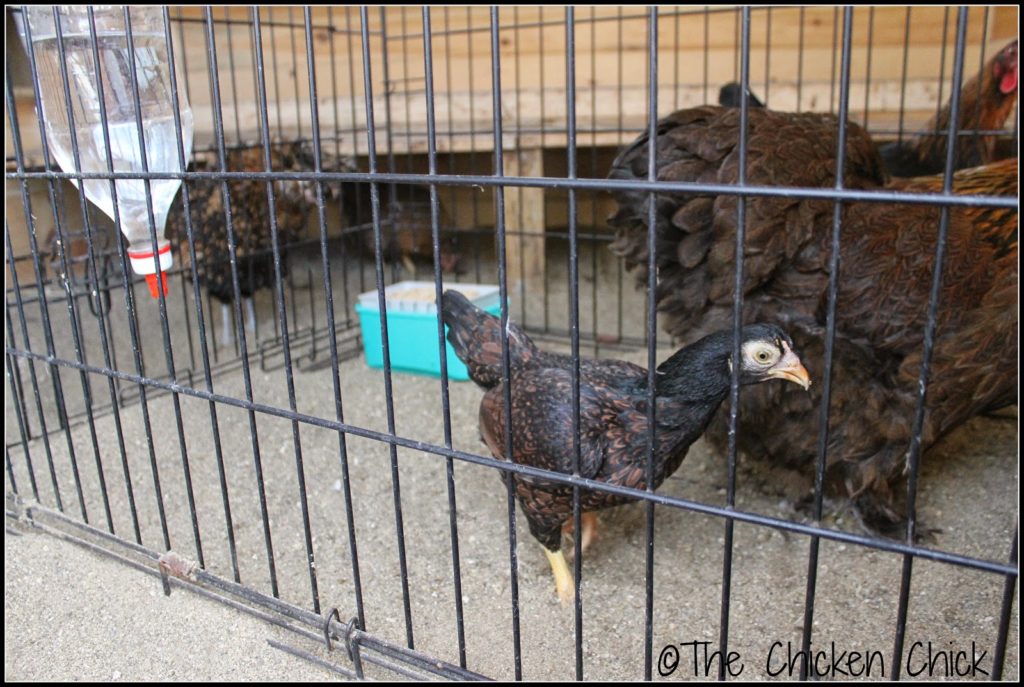


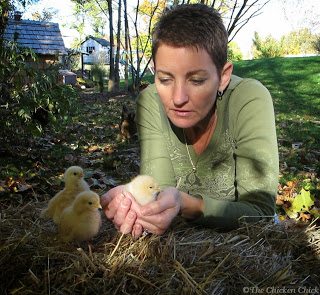



























Hello. My 1.5 year old Rhode island red has been sick for about 10 days. Lethargy, liquid droppings, droopy tail, no appetite and drinks a lot of water. I have an indoor space set up for her, but she is not showing any signs of improvement. I don’t have access to a vet. Any suggestions? Also how long do I let her go on like this?
I’m afraid if you have to ask that question, you already know the answer. By the time a bird is not eating anymore, the situation is dire. Sorry.
Hi, Hoping you can help? I have a year old Sablepoot and she’s suddenly got a swollen eye (I introduced 3 new 16 week old hens to the coop a week ago) The new chickens are all ok. Worried my sablepoot has caught something from them (although they seem fine?) She’s not looking very happy, still and puffed up feathers. She hasnt laid an egg for 3 days. Any advice? Thanks, Laura
She really has to be seen by a vet to determine the cause of the swollen eye.
I have a young hen (hasn’t even started laying yet) with suspected vent gleet. I had the vet take a look while here on a goat related issue and she didn’t seem to have any advice aside from euthanasia (hadn’t even heard of vent gleet). Because she hadn’t heard of vent gleet I couldn’t get a professional opinion on it and am only basing ideas from googling. Have you encountered this issue and was there anything you could do that didn’t involve a vet required prescription (tried getting nystatin without luck)?
The term “Vent gleet” describes a SYMPTOM, not a diagnosis. You would need the vet to test the discharge to determine whether there is an abnormal pathogen causing the discharge or whether there is another explanation (diet, parasites, disease, etc).
Hello, l have a hen pekin and she looks as though she has a prolapse bowel but there is a thick white thing ( almost like thick intestine) hanging out. What is this and can l do anything for her?
I’d imagine it’s eggshell membrane.
Please read this: https://the-chicken-chick.com/prolapse-vent-causes-treatment-graphic/
Kathy, I have a 1 1/2 year old lavender Orpington hen, (Pearl) she is lethargic, not eating, but she is drinking on her own, comb & waddle is bright red, has diarrhea, walking slow, then lays down in a corner by herself. She’s just not acting herself, she’s not laying eggs. I have vitamins & electrolytes in her water. She is in a crate by herself in our garage. Any suggestions on what else I should do? I’m going to give her chicken feed in water so I can give it to her in a eye dropper. She’s been like… Read more »
If you cannot get her to a vet, there’s nothing more you can do. Supportive care is all there is without a diagnosis. If she doesn’t improve soon, you need to help her cross over; you don’t want her suffering much longer.